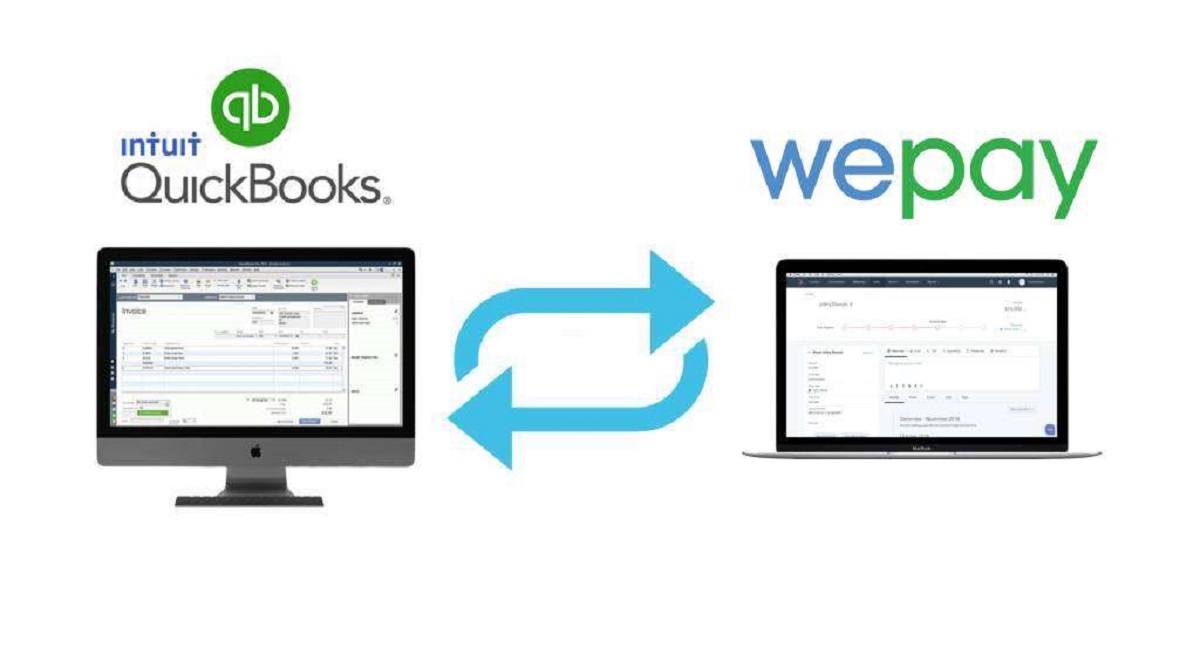Introduction
Welcome to the world of financial technology, or as it is more commonly referred to, fintech. In recent years, fintech has taken the financial world by storm, revolutionizing the way we conduct transactions, manage our money, and interact with financial institutions. One name that has become synonymous with fintech is Stripe.
Stripe is a payment processing platform that has gained tremendous popularity and recognition as a leader in the fintech industry. Its innovative services and features have made it a preferred choice for businesses of all sizes, from small startups to large enterprises.
In this article, we will dive into what makes Stripe a fintech powerhouse and explore its role in the ever-evolving fintech ecosystem. We will also discuss the advantages of using Stripe as a financial technology solution for your business.
But first, let’s take a closer look at the basics of fintech and understand the impact it has had on the financial sector.
The Basics of Fintech
Fintech refers to the use of technology to deliver financial services and products in a more efficient and innovative way. It encompasses various areas such as payment processing, lending, investing, insurance, and personal finance management.
The emergence of fintech has disrupted traditional financial institutions and paved the way for new players to enter the market. By leveraging technology, fintech companies are able to offer faster, more convenient, and often more cost-effective solutions to individuals and businesses.
One of the key drivers of fintech’s success is its focus on customer experience. Fintech companies aim to provide seamless and user-friendly interfaces for their services, making it easy for people to conduct transactions and manage their finances.
Furthermore, fintech has democratized financial services, allowing individuals who were previously underserved or excluded from traditional banking systems to access banking services and financial products. This inclusivity has helped create opportunities for financial inclusion and economic growth.
A notable aspect of fintech is its reliance on data and analytics. Through the use of advanced algorithms and machine learning, fintech companies can analyze vast amounts of data to make more accurate predictions and offer personalized recommendations to their customers.
Overall, fintech has had a profound impact on the financial industry, driving innovation, improving accessibility, and reshaping the way we manage and interact with our finances. With this understanding of fintech, let’s now delve into what sets Stripe apart as a leading player in the fintech space.
What is Stripe?
Stripe is a technology company that provides a payment processing platform, allowing businesses to accept and manage online payments. Founded in 2010 by Irish brothers Patrick and John Collison, Stripe has quickly grown to become one of the most influential players in the fintech industry.
At its core, Stripe simplifies the payment process, enabling businesses to accept payments from customers all over the world. Whether it’s through credit cards, digital wallets, or other payment methods, Stripe provides a secure and seamless way for businesses to process transactions.
Stripe’s platform is built with developers in mind. It offers an array of powerful APIs and software development kits (SDKs) that make it easy to integrate Stripe’s payment processing capabilities into websites and mobile applications. This flexibility and ease of integration have made Stripe a go-to choice for many businesses looking to enhance their online payment processes.
Moreover, Stripe provides a range of additional tools and services to support businesses in managing their finances. Its suite of products includes features like subscription billing, fraud detection, dispute resolution, and customizable reports.
With a strong focus on user experience, Stripe offers a clean and intuitive dashboard that allows businesses to monitor transactions, analyze payment data, and gain valuable insights into their customers’ behavior. This emphasis on usability has made Stripe a preferred option for both tech startups and established businesses alike.
Furthermore, Stripe operates on a global scale, supporting businesses in over 40 countries and accepting payments in more than 135 currencies. Its extensive geographic reach and multi-currency capabilities enable businesses to expand internationally without the hassle of dealing with different payment systems and currencies.
In summary, Stripe is a technology company that provides a comprehensive payment processing platform, along with additional features and tools to help businesses manage their finances more effectively. Its developer-friendly approach, global reach, and commitment to user experience have solidified its position as a leading fintech solution provider.
Is Stripe a Fintech?
Yes, Stripe is considered a fintech company due to its significant involvement in the financial technology sector. Fintech, as mentioned earlier, encompasses the use of technology to deliver financial services and products in a more efficient and innovative way. Stripe fits this definition by providing a modern and technology-driven solution for businesses to handle online payments.
Stripe’s core offering is payment processing, a fundamental aspect of financial transactions. By enabling businesses to accept payments via various channels and methods, Stripe plays a crucial role in facilitating these transactions in a secure and convenient manner.
Furthermore, Stripe goes beyond basic payment processing and offers a range of additional fintech features. For example, it provides businesses with tools to manage subscriptions, set up recurring payments, handle refunds, and monitor transaction data. These features not only streamline financial operations but also improve the overall user experience for both businesses and customers.
In addition, Stripe’s focus on developer-friendly APIs and SDKs aligns with the innovative nature of fintech. Its emphasis on seamless integration and customization allows businesses to leverage Stripe’s technology in a way that suits their specific needs.
Moreover, Stripe’s commitment to data security and fraud prevention aligns with the principles of fintech. With the rise of cyber threats and online fraud, Stripe implements robust security measures to protect sensitive payment information and prevent fraudulent activities, providing businesses and customers with peace of mind.
Overall, Stripe’s core functionality, additional features, developer-friendly approach, and commitment to data security make it a prominent player in the fintech space. Its ability to revolutionize the payment processing industry by leveraging technology and delivering innovative solutions solidifies its position as a leading fintech company.
Payment Processing
One of the key aspects of Stripe’s fintech offerings is its robust and streamlined payment processing capabilities. Stripe has simplified the payment process, making it easy for businesses to accept online payments from customers around the world.
Using Stripe, businesses can accept payments through various methods, including credit cards, digital wallets, and alternative payment options. With a single integration, businesses can provide their customers with a wide range of payment options, ensuring a seamless and convenient checkout experience.
Stripe handles the complexities of payment processing behind the scenes, making it simple for businesses to focus on their core operations. Stripe securely captures and encrypts payment information, ensuring the protection of sensitive data throughout the transaction process.
Moreover, Stripe’s payment processing capabilities extend beyond the initial transaction. The platform allows businesses to set up recurring payments for subscription-based services or recurring billing models. This feature is particularly useful for businesses offering software-as-a-service (SaaS), subscription boxes, or membership-based services.
Not only does Stripe provide a secure and convenient solution for businesses to accept payments, but it also offers comprehensive tools for managing and analyzing payment data. Businesses can access detailed reports and analytics to gain insights into their transaction history, customer behavior, and revenue trends.
Additionally, Stripe makes it easy to handle refunds and disputes. Businesses can issue refunds directly through the platform, simplifying the process for both the business and the customer. Stripe also provides dispute management tools, helping businesses effectively respond to payment disputes and chargebacks.
Overall, Stripe’s payment processing capabilities provide businesses with a reliable and efficient solution to handle online transactions. From accepting various payment methods to managing refunds and disputes, Stripe takes the complexity out of payment processing, allowing businesses to focus on delivering exceptional products and services to their customers.
Fintech Features of Stripe
Stripe offers a range of fintech features that go beyond basic payment processing, empowering businesses with tools to manage their finances, streamline operations, and enhance the overall customer experience.
One of the standout features of Stripe is its ability to handle subscriptions and recurring payments. Whether it’s a monthly subscription, annual membership, or any other recurring billing model, Stripe provides businesses with the infrastructure to set up and manage these types of payment arrangements effortlessly. This feature is particularly valuable for businesses in industries such as software-as-a-service (SaaS), media streaming, or membership-based services.
Another key fintech feature of Stripe is its support for global expansion. Stripe operates in over 40 countries, allowing businesses to accept payments from customers worldwide. Furthermore, Stripe accepts payments in more than 135 currencies, enabling businesses to seamlessly conduct cross-border transactions without the complexities of multiple payment systems or currency conversions.
Stripe also offers powerful tools for fraud detection and prevention. Its advanced machine learning algorithms analyze payment patterns and behavior to detect potentially fraudulent transactions. Stripe’s Radar feature helps businesses flag suspicious activity and prevents chargebacks, reducing the risk and financial impact of fraudulent transactions.
Furthermore, Stripe provides businesses with customizable reporting and analytics. Through its intuitive dashboard, businesses can access detailed reports on sales, customer behavior, and revenue trends. This data-driven approach allows businesses to gain valuable insights and make informed decisions to optimize their operations and improve their financial performance.
Additionally, as a fintech company, Stripe understands the importance of regulatory compliance. It ensures that businesses using its platform can meet various industry and regulatory requirements, such as PCI-DSS compliance for handling credit card data. This commitment to compliance and security gives businesses peace of mind and helps them build trust with their customers.
Lastly, Stripe offers seamless integrations with various third-party platforms and services. Whether it’s integrating with popular e-commerce platforms, accounting software, or customer relationship management (CRM) systems, businesses can expand the capabilities of their Stripe integration to suit their specific needs.
Overall, Stripe’s fintech features provide businesses with the tools they need to manage payments, prevent fraud, analyze data, expand globally, and enhance the overall customer experience. These features contribute to Stripe’s reputation as a leading fintech solution provider.
Stripe’s Role in the Fintech Ecosystem
Stripe plays a vital role in the fintech ecosystem as a significant enabler of modern financial technology solutions. It has revolutionized the way businesses handle payments, empowering them with the tools and infrastructure to navigate the digital economy.
First and foremost, Stripe provides businesses with a secure and efficient payment processing platform. By offering a seamless integration of multiple payment methods, businesses can easily accept and manage online payments from customers around the world. This simplifies the payment process, enhances customer satisfaction, and boosts business growth.
Stripe’s role in the fintech ecosystem extends beyond just payment processing. Its developer-friendly APIs and SDKs allow businesses to build custom integrations and create innovative, unique experiences for their customers. Stripe enables businesses to enhance their products and services by integrating payment capabilities seamlessly into their own platforms and applications.
Moreover, Stripe’s ability to handle subscriptions, recurring payments, and complex billing models is instrumental in supporting the growth of subscription-based businesses and software-as-a-service (SaaS) companies. By providing an easy-to-use infrastructure for managing recurring revenue streams, Stripe facilitates the success of businesses operating in the subscription economy.
As businesses expand globally, Stripe’s international reach becomes even more crucial. By supporting payments in multiple currencies and operating in numerous countries, Stripe eliminates the complexities and challenges associated with cross-border transactions. This enables businesses to enter new markets, serve a wider customer base, and scale internationally with ease.
Stripe’s role in the fintech ecosystem also extends to fraud detection and prevention. Its advanced machine learning algorithms analyze patterns, transactions, and customer behavior to identify fraudulent activities and prevent chargebacks. By offering robust fraud prevention tools, Stripe helps businesses mitigate the risks associated with online transactions.
Furthermore, Stripe’s commitment to compliance and security reinforces its role as a trusted fintech solution. The platform ensures that businesses can meet industry and regulatory requirements, such as PCI-DSS compliance, to ensure the protection of sensitive payment information. This commitment to security instills confidence in businesses and their customers.
In summary, Stripe’s role in the fintech ecosystem is multifaceted. It provides businesses with a secure and efficient payment processing platform, enables custom integrations and innovative experiences, supports subscriptions and recurring payments, facilitates global expansion, prevents fraudulent activities, and ensures compliance with industry regulations. With its comprehensive fintech offerings, Stripe truly empowers businesses to thrive in the digital economy.
Advantages of Using Stripe as a Fintech Solution
Using Stripe as a fintech solution offers numerous advantages for businesses in managing their payment processes and financial operations. Here are some key advantages of utilizing Stripe:
1. Easy Integration: Stripe provides businesses with developer-friendly APIs and SDKs, making it effortless to integrate payment processing capabilities into websites or mobile applications. The seamless integration reduces the time and effort required to set up and start accepting payments online.
2. Wide Range of Payment Options: Stripe supports various payment methods, including credit and debit cards, digital wallets, and alternative payment options. This ensures businesses can cater to the payment preferences of their customers, offering a convenient and frictionless checkout experience.
3. Global Reach: With operations in over 40 countries and support for more than 135 currencies, Stripe enables businesses to expand their reach globally. Establishing an international presence becomes easier as Stripe handles the complexities of cross-border transactions, allowing businesses to focus on serving customers in new markets.
4. Recurring Billing and Subscription Management: Stripe’s flexible platform allows businesses to set up and manage recurring payments for subscription-based services. This feature is invaluable for businesses operating in the subscription economy, offering a hassle-free way to handle recurring revenue streams and automate billing processes.
5. Advanced Fraud Prevention: Stripe employs sophisticated machine learning algorithms to detect and prevent fraudulent transactions. Its robust fraud prevention tools provide businesses with an added layer of security and help reduce the risk of chargebacks, protecting both businesses and their customers.
6. Detailed Reporting and Analytics: Stripe offers in-depth reporting and analytics features, allowing businesses to gain insights into their payment data, customer behavior, and revenue trends. These data-driven insights can inform business decisions and strategies, enabling businesses to optimize their operations and drive growth.
7. Customizable and Scalable: Stripe’s platform is highly customizable, allowing businesses to tailor the payment processing experience to their unique needs and branding. Additionally, Stripe’s infrastructure is designed to handle businesses of all sizes, from startups to enterprise-level organizations, making it a scalable solution as businesses grow and expand.
8. Developer Community and Support: Stripe has a large and active community of developers, offering resources, documentation, and support to help businesses make the most of the platform. The extensive support ecosystem ensures businesses can find solutions and overcome any technical challenges they may encounter.
Overall, the advantages of using Stripe as a fintech solution include easy integration, a wide range of payment options, global reach, recurring billing support, advanced fraud prevention, detailed reporting and analytics, customization options, and a robust developer community. These benefits empower businesses to enhance their payment processes, streamline operations, and deliver exceptional customer experiences.
Conclusion
Stripe is undeniably a powerhouse in the fintech industry, offering a comprehensive payment processing platform and a wide range of fintech features. Its commitment to innovation, user experience, and security has made it a preferred choice for businesses of all sizes looking to navigate the digital economy effectively.
As a fintech solution, Stripe simplifies payment processing, providing businesses with an easy-to-use platform for accepting online payments. Its wide range of payment options, global reach, and support for recurring billing enable businesses to cater to customer preferences and expand their operations globally.
With advanced fraud prevention tools and robust reporting capabilities, Stripe helps businesses mitigate risks and make data-driven decisions to optimize their financial operations. Moreover, Stripe’s developer-friendly approach allows businesses to tailor the payment processing experience to their specific needs and enhance their offerings through seamless integrations.
By leveraging Stripe as a fintech solution, businesses can focus on their core operations and customer relationships, knowing that their payment processes are reliable, secure, and aligned with industry compliance standards.
In conclusion, Stripe’s powerful fintech features, easy integration, global reach, customizable options, and commitment to security and innovation make it a standout player in the fintech ecosystem. Whether it’s managing payments, supporting subscriptions, preventing fraud, or accessing insightful analytics, Stripe empowers businesses to thrive in the digital economy and deliver exceptional experiences to their customers.

























